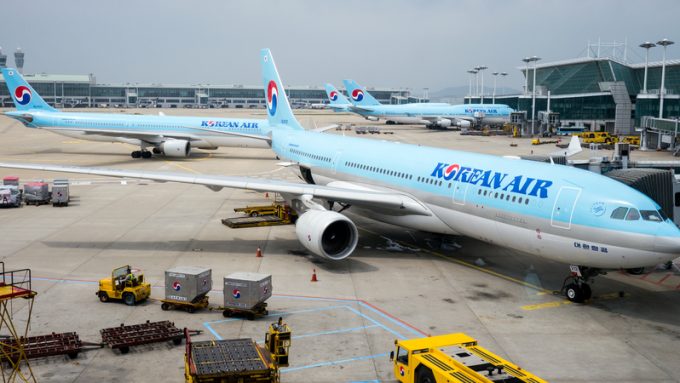LX Pantos spreads its wings as ecommerce traffic drives network expansion
South Korean 3PL LX Pantos said yesterday it had paid $156m to acquire the 11-storey ...

Korean Air, which saw first-quarter cargo revenue fall 7.6% year on year, is to suspend its services at cargo terminals in three cities.
In a bid to improve its financial position, the carrier said it would stop transport and cargo handling services at Gwangju, Cheongju and Daegu on October 1.
In its first-quarter results, released in May, the carrier reported freight tonne kilometres down 9.4% and a net loss of KRW10bn ($9.2m), which it blamed on US-China trade tension and a strong dollar, respectively.
Local media reports analysts saying ...
'Disastrous' DSV-Schenker merger would 'disrupt European haulage market'
New senior management for DSV as it readies for DB Schenker takeover
Volumes set to 'fall off a cliff' as US firms hit the brakes on sourcing and bookings
Asian exporters scramble for ships and boxes to beat 90-day tariff pause
Amazon pushes into LTL for small package fulfilment and UPS does a u-turn
Temporary tariff relief brings on early transpacific peak season
Pre-tariff rush of goods from US to China sees air rates soar, but not for long
'Tariff madness' will prompt renegotiation of ocean shipping contracts

Comment on this article